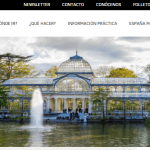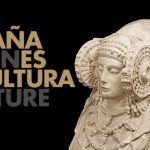Through CONTURSA, SEGITTUR and the local government of Seville have today signed a cooperation protocol to boost smart tourism in destinations, with the aim of responding to the new challenges facing tourism sector.
The agreement was signed in Seville by the Chairman of SEGITTUR, Enrique Martínez, and the managing director of CONTURSA and deputy mayor of the Urban Habitat, Culture and Tourism department of the local government of Seville, Antonio Muñoz.
Both entities will work on the design and development of a Smart Destinations strategy and work programme within the framework of actions supported by the Smart Destinations initiative, as well as the work performed by the Smart Space – Smart Tourism Office of Seville, to contribute towards improving the knowledge and smart tourism implemented in destinations.
This agreement aims to promote the development of technological tools and sensors, methodologies and access to data from different sources of information, both public and private, to measure and learn more about tourist flows in destinations.
Boosting technical cooperation projects in the rest of Spain, exchanging data and comparing knowledge and smart tourism with other Spanish tourist destinations within the Smart Destination Network is another term in the agreement.
Further plans include supporting the sharing of efforts linked to Smart Destinations, the smart tourism system and the measurement of tourist flows, which will be carried out by the Smart Space – Smart Tourism Office or by SEGITTUR, sharing these good practices, identified success stories and lessons learned.
Finally, the agreement will support general and specific training in smart tourism, anticipating the provision of mechanisms that will provide access to the knowledge and smart tourism practices to companies, especially SMEs, and to other parties involved in the tourism sector.
For the Chairman of SEGITTUR, this agreement will lead to increased knowledge about tourist flows within the city, information which will be key to improving the management of urban spaces and the resulting redistribution of visitors, all with the aim of providing better experiences for tourists.
Martínez explained that the creation of a tourist flow work group within the Smart Destination Network will also be promoted, and work will be carried out to standardise smart tourism in collaboration with the Spanish Association for Standardisation.
“Within the local government of Seville, we are making very important progress in our municipal strategy to digitalise tourism and turn the city into a Smart Destination and, in particular, into a sustainable destination. Following the opening of the Smart Tourism Office this week, which is a laboratory for the smart management of data and an entrepreneurship centre for innovation and technology used to make the tourism industry more sustainable, we are now taking steps down the path towards becoming a Smart Destination, strengthening the work we began several years ago with SEGITTUR,” said Antonio Muñoz.
In fact, since last February, SEGITTUR has been putting the city through exhaustive analysis, assessing over 400 requirements linked to the five categories for Smart Destinations: governance, innovation, technology, accessibility and sustainability. “We are confident we will pass, and easily,” said Antonio Muñoz.
Through CONTURSA, SEGITTUR and Seville City Council today signed a cooperation protocol to boost smart tourism at destinations to respond to the new challenges facing the tourism sector.
The agreement was signed in Seville by the Chairman of SEGITTUR, Enrique Martínez, and the managing director of CONTURSA and deputy mayor for the Urban Habitat, Culture and Tourism department of Seville City Council, Antonio Muñoz.
Both entities will work on the design and development of a Smart Destinations strategy and work programme within the framework of actions supported by the Smart Destinations initiative, as well as the work performed by the Smart Space – Smart Tourism Office of Seville, to contribute towards improving the knowledge and smart tourism implemented in destinations.
This agreement aims to promote the development of technological tools and sensors, methodologies and access to data from different public and private sources, to measure and learn more about tourist flows in destinations.
The agreement also provides for driving technical cooperation projects in the rest of Spain, exchanging data and comparing knowledge and smart tourism information with other Spanish tourist destinations within the Smart Destination Network.
Further plans include supporting the publication of jobs linked to Smart Destinations, the tourism intelligence system and the measurement of tourist flows, which will be carried out by the Smart Space – Smart Tourism Office or by SEGITTUR, sharing these good practices, identified success stories and lessons learned.
Finally, the agreement will support general and specific training in smart tourism, anticipating the provision of mechanisms that will make the generated know-how and tourism intelligence available to companies, especially SMEs, and to other parties involved in the tourism sector.
For the Chairman of SEGITTUR, this agreement will lead to increased knowledge about tourist flows within the city, information which will be key to improving the management of urban spaces and the resulting redistribution of visitors, all with the aim of providing better experiences for tourists.
Martínez explained that the creation of a tourist flow work group within the Smart Destination Network will also be promoted, and work will be carried out to standardise smart tourism in collaboration with the Spanish Association for Standardisation.
“Seville City Council is making very important progress in our municipal strategy to digitalise tourism and turn the city into a Smart Destination and, in particular, into a sustainable destination. Following the opening of the Smart Tourism Office this week, which is a laboratory for the smart management of data and an entrepreneurship centre for innovation and technology used to make the tourism industry more sustainable, we are now taking steps down the path towards becoming a Smart Destination, strengthening the work we began several years ago with SEGITTUR,” said Antonio Muñoz.
In fact, since last February, SEGITTUR has been putting the city through exhaustive analysis, assessing over 400 requirements linked to the five categories for Smart Destinations: governance, innovation, technology, accessibility and sustainability. “We are confident we will pass, and easily,” said Antonio Muñoz.





